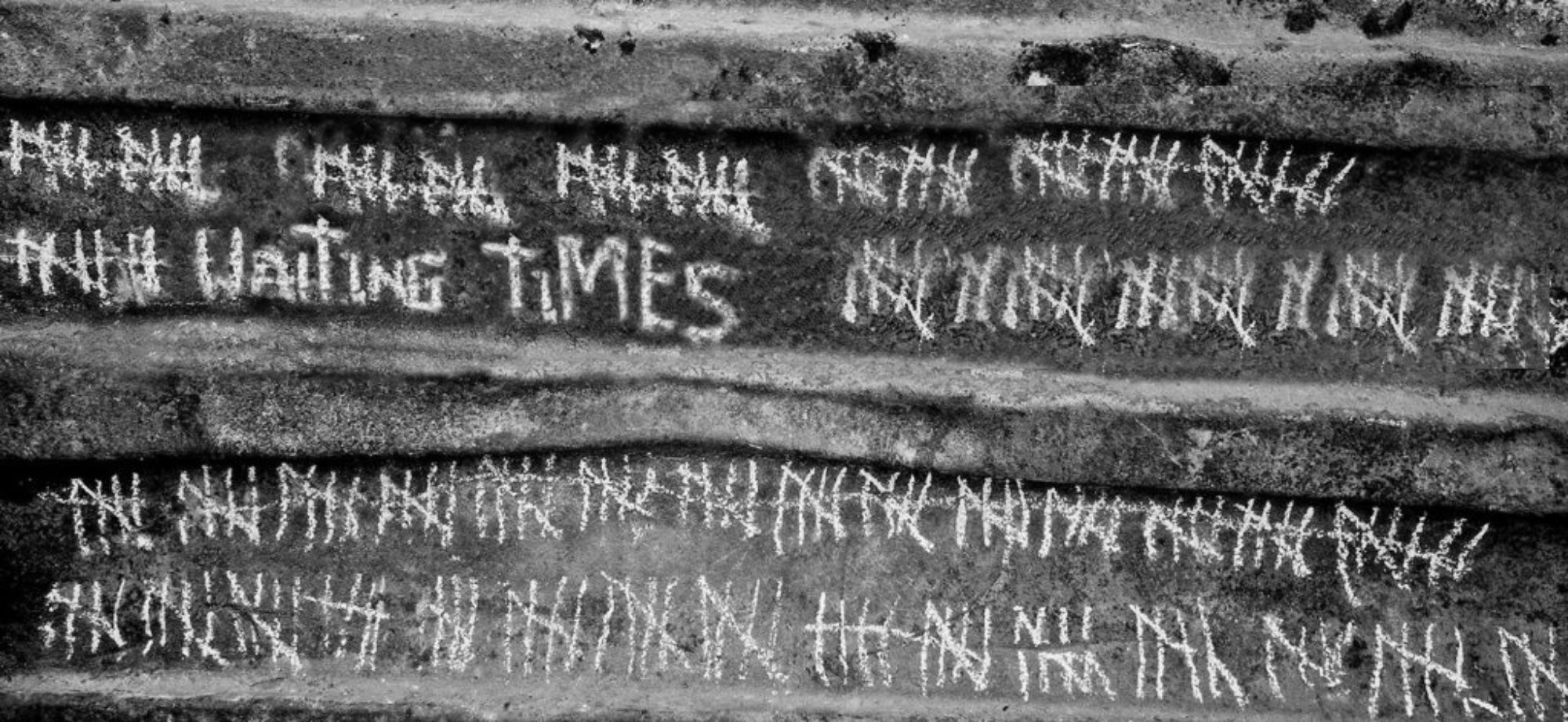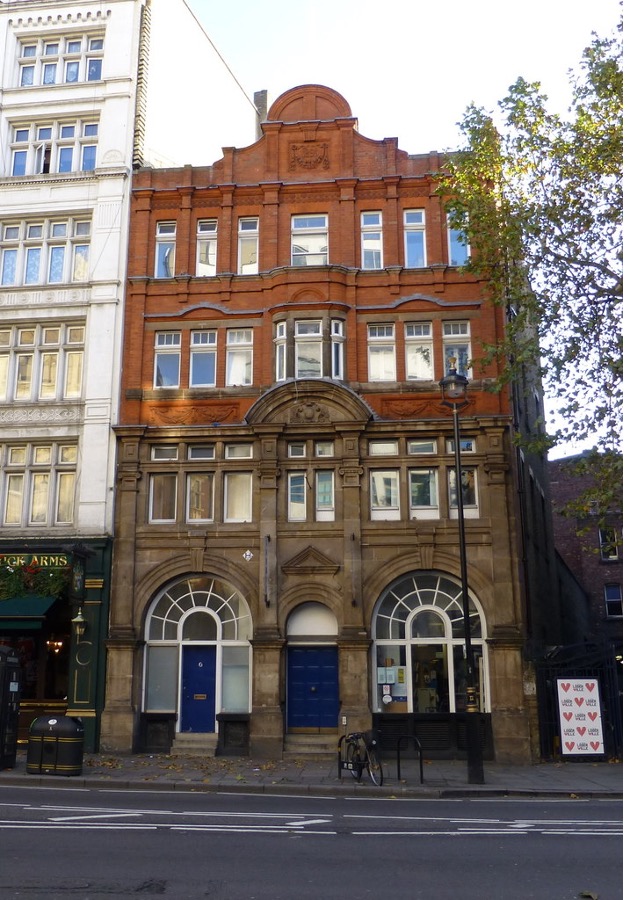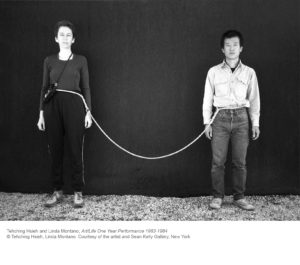Dr Kelechi Anucha writes …
On a sunny day on 19th August 2023, a diverse group of attendees gathered for Jenny Mitchell’s Poetry and Time workshop at Charing Cross Library. It was a curious experience to enter this space – an oasis of calm amid the busy foot and road traffic flowing through Trafalgar Square in Central London. In contrast to the heat and crush just outside, the library was quiet and cool, populated by reflective visitors, but not in any way overcrowded. Attendees milled around, investigating the library’s varied stock as we waited for the workshop to begin in the community space downstairs.
There were 13 of us, including Jenny, who settled in the seats to introduce ourselves. We were immediately immersed in what developed into a reflective and creative atmosphere, as Jenny invited us to free-write for several minutes about our journeys to the workshop. This was a useful and interesting exercise that felt both accessible and manageable and, for me, cleverly helped shake off any self-consciousness about writing.
The workshop followed on from a previous session on poetry and time hosted by the Wellcome Centre for Cultures and Environments of Health at the University of Exeter; it was interesting to see how a different location and demographic produced a different, but equally rich environment and experience. At the WCCEH in Exeter, attendees were largely researchers and writers with a connection to the University. Here, an albeit larger group of attendees came from a variety of different backgrounds and lived-experiences – retirees, those seeking to reconnect with their creativity and even some who brought experience from their own poetry practice. Jenny guided us through a series of different poems, each one read (or perhaps even, performed) out loud by one of us, the attendees. Jenny invited us to think about how we might use these published works as a springboard to express personal understandings of both trauma and healing.
We undertook this work primarily through crafting what Jenny has described as ‘after poems’, using lines from the dossier of published poetry Jenny had selected as prompts for our own work. We wrote in short, timed bursts which did not feel overwhelming, or allow too much space of overthinking or overwriting. The first poem was ‘February Day’ by Susan Hahn, which opens with the line ‘The flowers will not allow themselves | to be tricked by this day’. This opaque and intriguing opening staged interesting discussions about meaning-making, as together we tried to parse the author’s intent. Overall, a collective understanding emerged, through our discussions and responses, of Hahn’s poem as ultimately hopeful – setting the scene for the distinctive combination of pain and healing that we explored throughout the ensuing session. We then examined Robin Chapman’s poem ‘Time’, noting the specificities of its form – one, long run on sentence – which seemed to communicate the mental state and indeed the loneliness of the poem’s subject. This poem was an excellent choice which I could see opened our collective understanding of what can be achieved and conveyed through formal choices (such as enjambment) and how to capture the vitality and force of personality on the page. The third and final poem we looked at together was ‘No Time’, by Billy Collins, a poem Jenny suggested and that many agreed was masterly (despite the negative connotations we might sometimes rightly attach to such a term). We discussed how this short, two stanza poem cleverly brings together past and present, and again seemed able to characterise its subjects with sparse words and a very light touch. It emerged in the discussion that the capacity to write such a short and impactful poem is itself something that involves a huge amount of time: hours dedicated to learning and honing poetic craft. Taken together, these three pieces were inspiring, provoking some outstanding work in response from attendees.

The session was broken up by a reflective break, accompanied by tea and biscuits, very gratefully received. The library had provided a selection of poetry books from their stock for attendees to peruse for further inspiration, which stood out as one of the advantages of holding a workshop in that particular space. Jenny offered feedback, constructive criticism and encouragement throughout the session, offering structured opportunities for us to tweak and revisit our first drafts (and therefore providing insight into the process of creative revisions and refinements). Some truly exceptional poetry emerged from the session, of which Jenny was supportive; she advised on how to submit poems to competitions and magazines once they were complete.
Despite coming from different walks of life and being previously unacquainted, attendees of the workshop were able to enter into a zone of deep work and candid reflection about the poems and their own experience. Everyone was encouraged to participate and share from their different levels of confidence. This was a remarkable thing to be able to hold and accomplish in so short a period of time. Overall, it was a successful and compelling workshop which seemed to inspire a great amount of creativity, empowering us to reclaim something of our own experience from contemporary poetic works.
February Day
The flowers will not allow themselves
to be tricked by this day,
the sudden blaze of sun that ignites
my window and melts its crust of ice-
lights my shade—this morning when I rise
past the night terrors-
the 2 a.m. immolations
of the mind. How many explosions
will it take to find you finally
gone from me, before
the time your body’s actually set
on fire-when you are scattered
somewhere beyond loss,
your spirit adrift always
from mine? But, today
when you phone after all the dark
months of silence, the endless scenes
of hunger and singular deaths-
one switch of the dial so easily
reports it-to say
hello, how’s it going,
I remember the voice
in my heated dreams
that keeps calling
to me, and how I push and push
up through the mud
forever trying to reach it,
forever saying Yes.
Susan Hahn
Originally published in Poetry (January 1996) via The Poetry Foundation – https://www.poetryfoundation.org/
Time
My neighbor, 87, rings the doorbell to ask
if I might have seen her clipping shears
that went missing a decade ago,
with a little red paint on their shaft,
or the iron turkey bank and the porcelain
coffee cup that disappeared a while back
when her friend, now dead, called the police
to break in to see if she were ill, and have we
had trouble with our phone line, hers
is dead and her car and driver’s license
are missing though she can drive perfectly
well, just memory problems, and her son
is coming this morning to take her up
to Sheboygan, where she was born
and where the family has its burial lots,
to wait on assisted living space, and she
just wanted to say we’d been good neighbors
all these how many? years, and how lucky
I am to have found such a nice man
and could she borrow a screwdriver,
the door lock to her house is jammed.
Robin Chapman
Poem copyright ©2012 by Robin Chapman, whose most recent book of poems is the eelgrass meadow, Tebot Bach, 2011. Poem reprinted from the Alaska Quarterly Review, Volume 28, nos. 1&2 (Spring/Summer 2011) via The Poetry Foundation – https://www.poetryfoundation.org/
No Time
In a rush this weekday morning,
I tap the horn as I speed past the cemetery
where my parents are buried
side by side beneath a slab of smooth granite.
Then, all day, I think of him rising up
to give me that look
of knowing disapproval
while my mother calmly tells him to lie back down.
Billy Collins
Originally published in Poetry (December 2000) via The Poetry Foundation – https://www.poetryfoundation.org/



